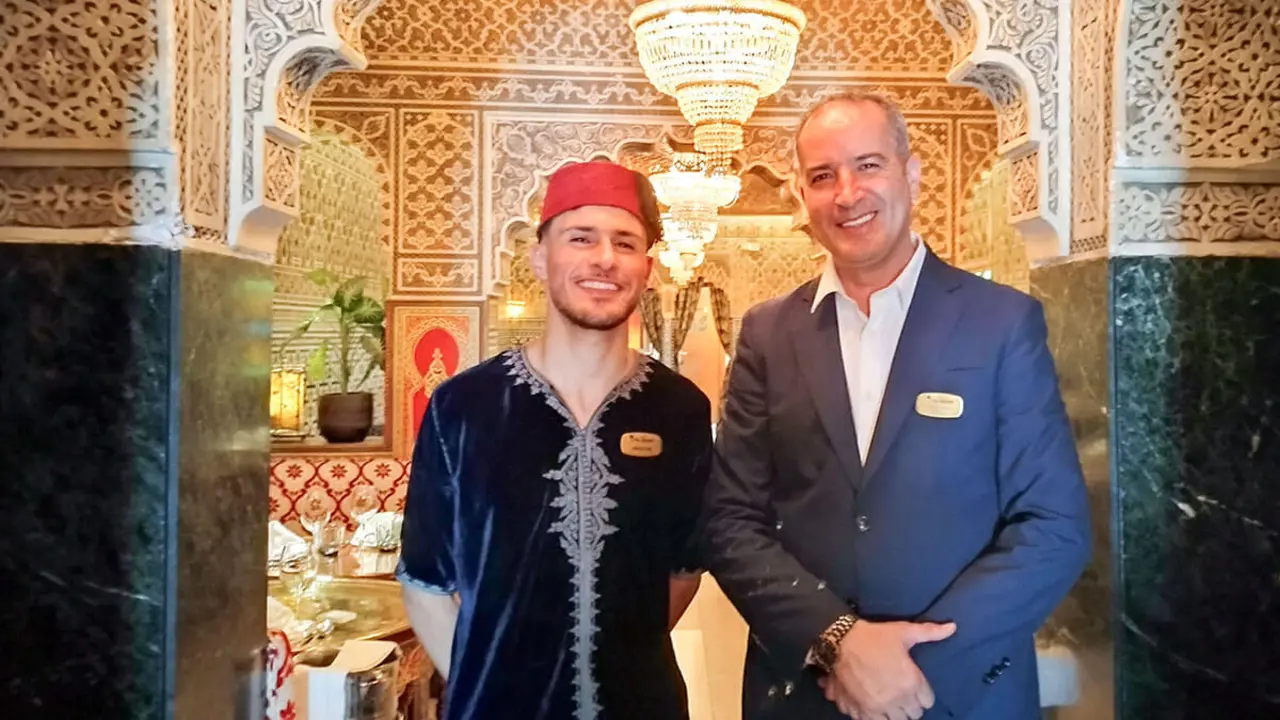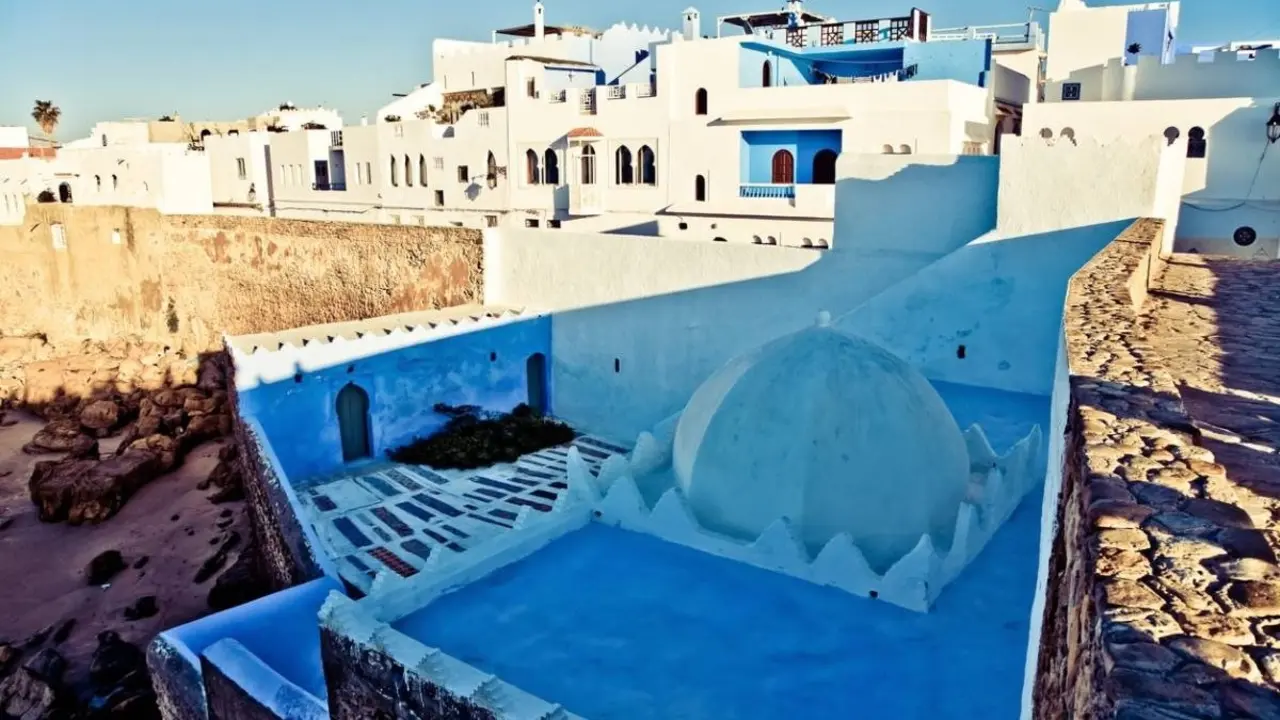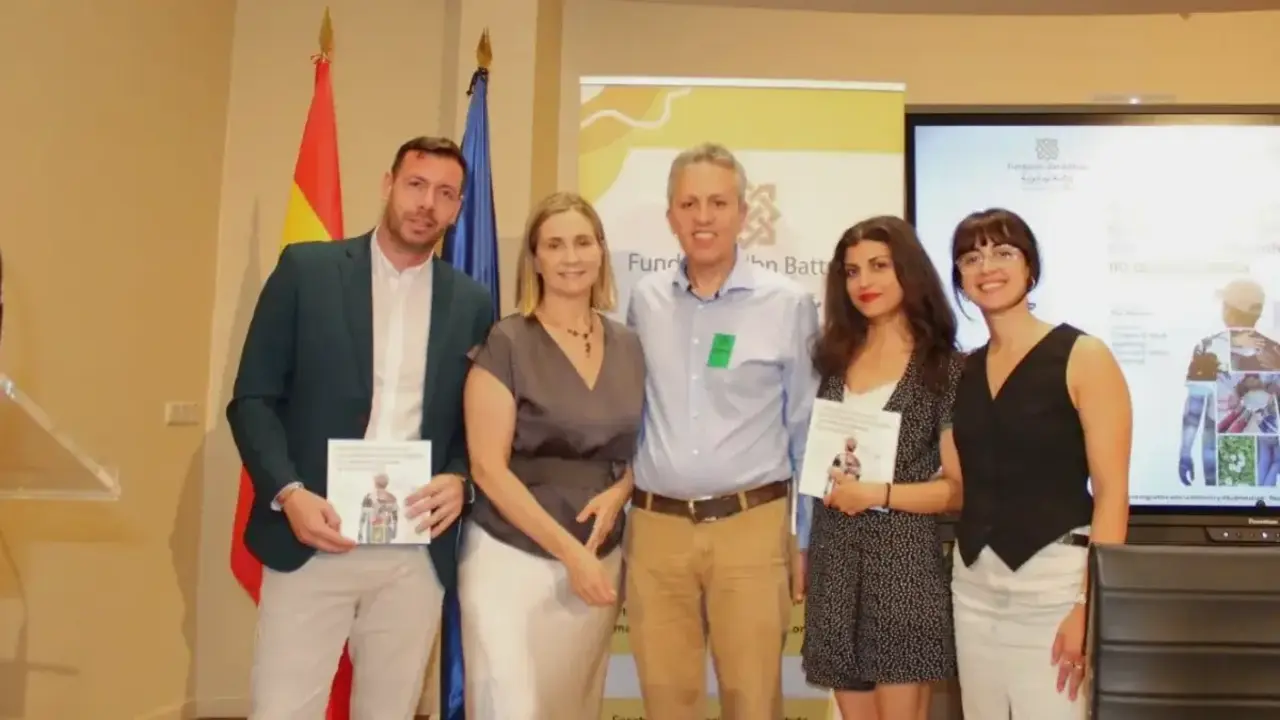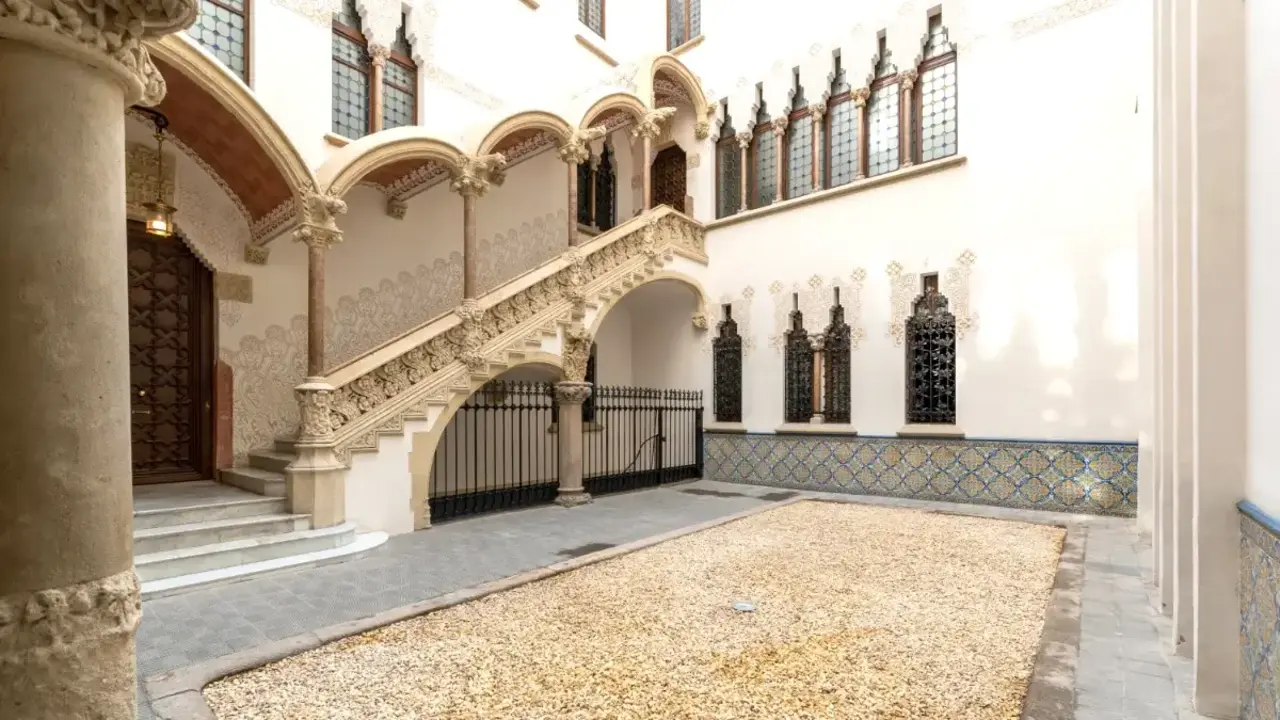Fernando Amérigo: "Interreligious dialogue is an obligation of states rather than a simple proposal".

The Foundation for Islamic Culture and Religious Tolerance, in collaboration with the Complutense University of Madrid, organised a conference at the Real Centro Universitario del Escorial with the aim of promoting interreligious dialogue in the face of exclusionary identitarianism. The reason for this event was to highlight and promote coexistence and peace as necessary concepts in the face of religious radicalism that promotes the exclusion of other types of identities and religions.
If the 20th century was the century of great wars, the 21st century is taking shape as the century of coexistence, at least in theory through legal and juridical frameworks. However, in the current context marked by multinationality, multi-ethnicity and globalisation, it has brought with it a range of identity and religious differences that not everyone is willing to respect. We have seen this with the development and influx of terrorist groups that have been characterised by a lack of tolerance for peaceful coexistence among those who do not think alike.
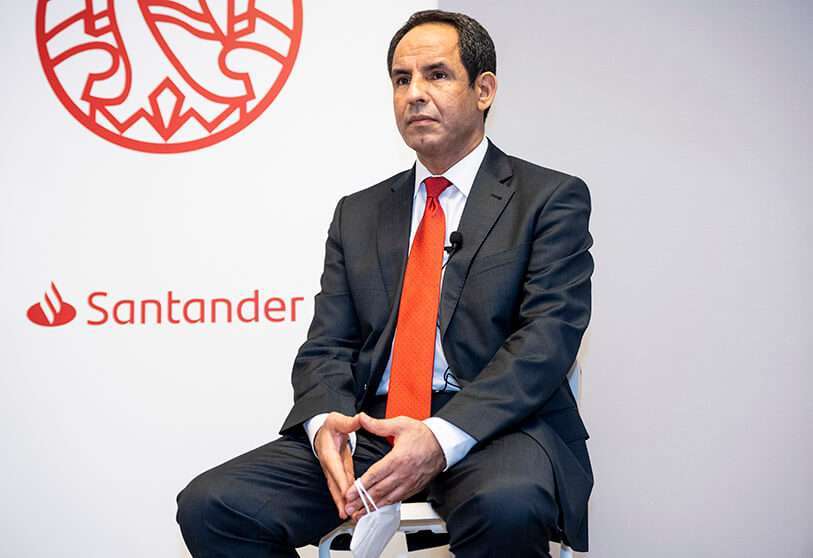
In this respect, we are currently witnessing the outbreak of a cruel terrorism that has taken on different names and different aspects with the same aim: to establish by force and violence a social and political system that does not advocate the defence of human rights. In this sense, the event has transcended with the aim of honouring tolerance as a basic tool for achieving coexistence and "spreading the message of peace".
The first part of the day began with a welcome from the diplomat and director of the Foundation for Islamic Culture and Religious Tolerance, Jumaa al Alkhaabi, who stated that "reality is the best example of the need to implement the vision of coexistence on the ground, which is what the Foundation is trying to achieve. Advancing through this initiative by means of the interaction of all the entities that cooperate with it".
Along these lines, the director affirmed that "people continue to cling to national identity and to moral and traditional religious values, and this is something blessed, however, there are some negative aspects and some challenges, such as not living together with others or showing oneself superior to them, which has led the world to face numerous conflicts". The diplomat affirmed that "we are committed as a foundation to achieve all that is necessary to achieve coexistence and tolerance".
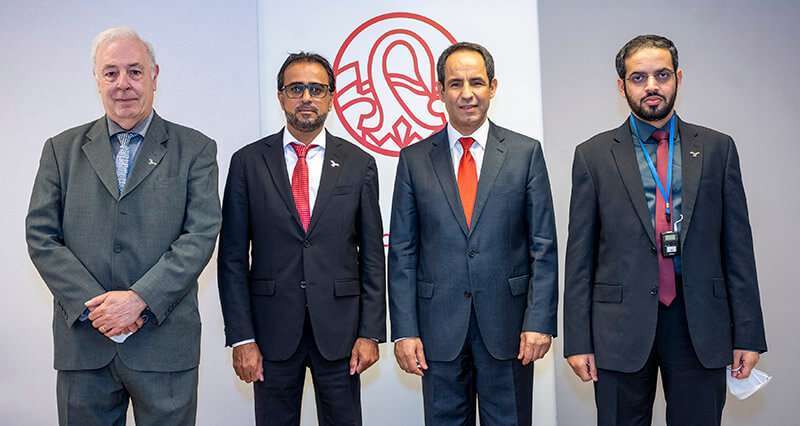
Al Alkhaabi introduced the course director and professor of the Department of International Law at the Complutense University, Fernando Amérigo Cuervo-Arango, who gave the lecture on interreligious dialogue and citizen governance, stressing that "here we open the door to an interreligious dialogue that advocates developing the intellect and building bridges to close the void that reigns when the language of coexistence disappears. We want to strengthen the culture of tolerance. We have to raise our hopes for inter-religious dialogue.
In this way, "identity includes the respect to manifest it and act in accordance with it, the question of identity is at the forefront of security issues, a single identity that does not allow for choice".
In the first part, Dr. Amérigo stated that "new conflicts have begun to emerge in a context in which understanding respect for personal identity and differences has deteriorated in a framework that is increasingly multinational".
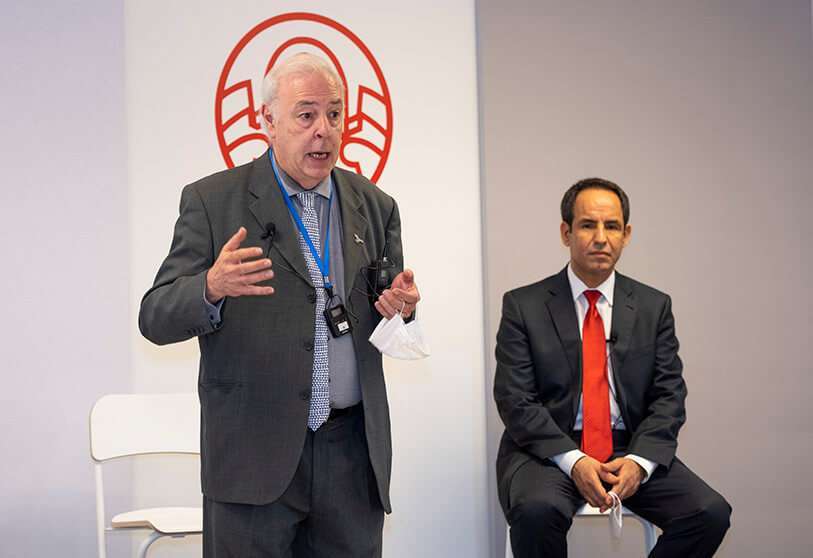
he second part of the colloquium was marked by interreligious dialogue and governance. In this instance, identities were highlighted as another object of consumption, which "have taken on a mobile and plastic character in a much more inflammable world. Any person is a member of many different groups without this being a pretext for discrimination". In this way, "the challenge is to ensure that their identity is respected, but without violating human rights" because "any person is a member of many different groups without this being a pretext for discrimination".
Amérigo went on to affirm that "globalisation has detached personalities from their identities and that "nationalisms of all kinds have become an instrument for homogenising the conscience of citizens by appealing to spirituality". Finally, Professor Amérigo concluded by affirming that "only through communication and tolerance will it be possible to live together (...) human dignity is equal for all. Religion is not merely private. Religion is part of society".
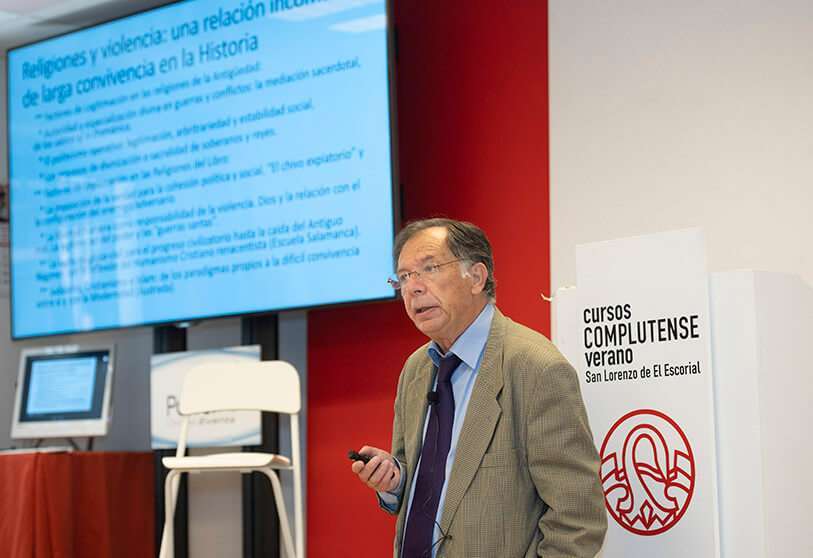
In this sense, Fernández stressed that our society "rests on the reassurance that human rights are intangible and represent such an important reality that they are the basis of our social and political relations", these being "constants that shape our heritage". Moreover, "fundamental texts constitute an intangible heritage of religions".
According to Dr Fernández, "Spain represents 74% of tolerance towards the Muslim religion in comparison with other European countries such as the United Kingdom, Poland and Germany, which are below 50%".
The 20th century also represents a paradigm of secular violence, in which European dictatorships did not uphold religion as a principle or a law, with the exception of some European countries. Totalitarianisms sought to eradicate religious practice, so "violence would be determined by the process of secularisation".
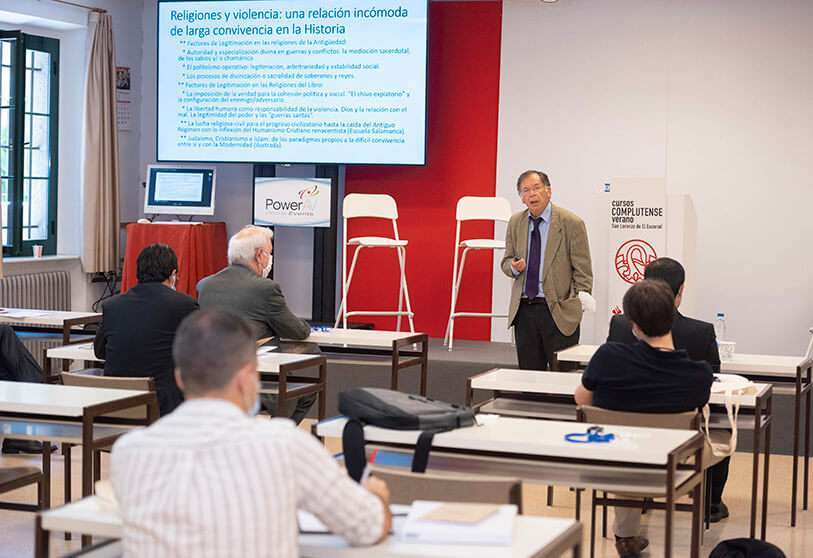
For the professor, there are a number of tasks ahead in order to create a more tolerant society. Firstly, interreligious dialogue must act from within the power of society. Secondly, there must be "a commitment to democracy and the rule of law" in which "religious public policies for the empowerment of women and what Fernández describes as "collectives of suspicion" are created and implemented. Thirdly, a "religious-civil articulation or towards an inclusive and cooperative laicism" would be necessary, although he affirms that awareness of peace from the perspective of civil ethics and human rights has progressed.
Thus, the academic concluded his speech by affirming that "interreligious dialogue should be limited to or focused on the sphere of auctoritas, never of postestas. At the same time, dialogue must take place internally between the laity and the powers between which there is feedback".
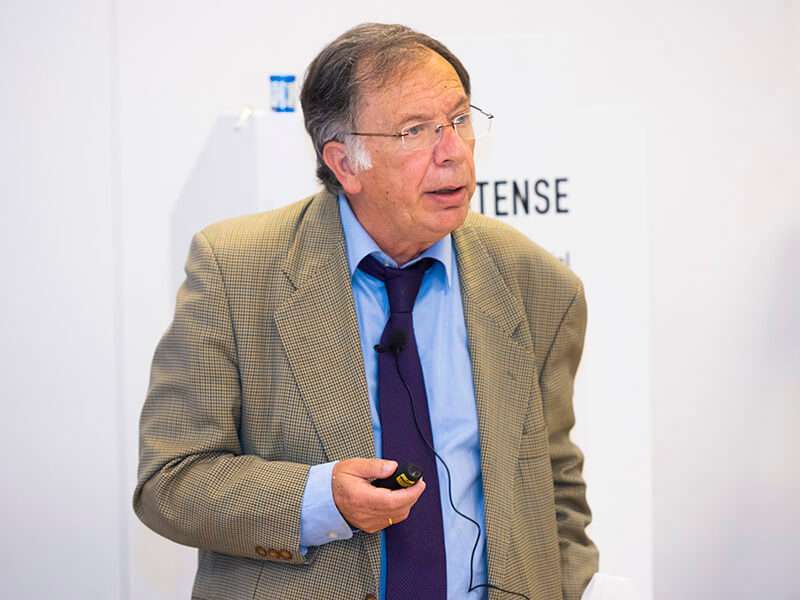
Finally, Jumaa al Khaabi defended the protection of "interreligious dialogue with emphasis". Along with this, he gave the example of the state of the Emirates as a country that "has achieved a good balance in these circles, as we can live in different worlds within the same country". In the same way, al Khaabi defends that intolerance comes from "lack of knowledge about other cultures, since "he who ignores something is obviously opposed out of ignorance".
Action by public authorities in the face of exclusionary identitarianism
In the final part of the day, a round table was held to discuss the actions of the public authorities in the face of exclusionary identitarianism. The Deputy Director General for Religious Freedom at the Spanish Ministry of the Presidency, Mercedes Murillo, took part in the round table, stressing that "the idea of inter-religious dialogue has a theological dimension linked to beliefs and religions in a social dimension, in which the public authorities can be involved".
To this end, "it is essential that in order to make progress in this dialogue, it is an object with a purely social purpose. Dialogue is essential, there are no homogeneous societies, globalisation together with migratory movements have created diverse societies in which it is necessary to establish coexistence". In the same way, the deputy director appealed to the importance of "educating in interculturality in the educational sphere", giving "visibility to religious minorities in Spain through mutual knowledge", since "it is important that we can get to know the other", as well as "promoting their role in the fight against violence".
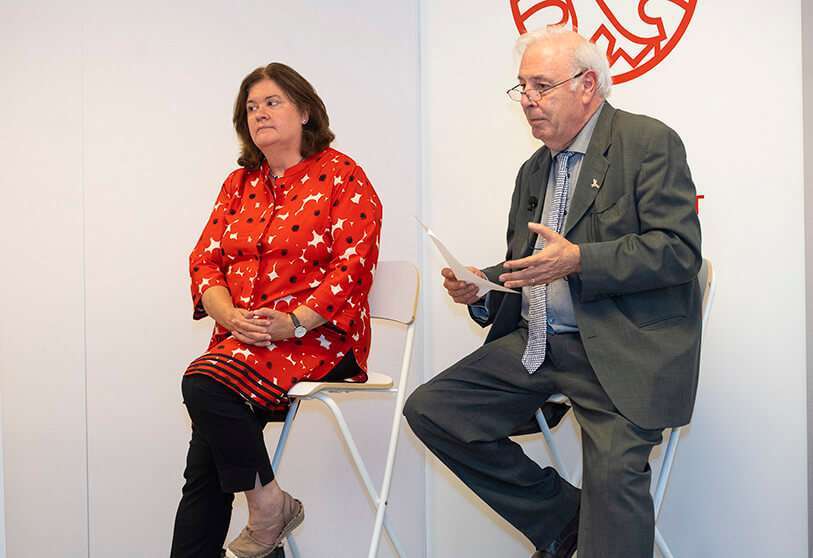
The next intervention came from the director of the Pluralism and Coexistence Foundation, Ministry of Justice, Inés Mazarrasa, who proposed the need to "promote spaces for meeting and coexistence" in which "the possibility of an exchange of society in general is established so that the administrators and public authorities can do so in accordance with the demands".
Mazarrasa stated that the foundation "works actively for the recognition of this diversity in our country, against discrimination and for the implementation of religious freedom". Furthermore, the "commitment to a public entity whose mandate is to be able to promote this right to religious freedom is based on the recognition of changes and a transformation that has to do with a progressive secularisation that is also accompanied by greater religious diversity". In this regard, he pointed out that in Spain "one out of every four places of worship is not Catholic" and that "30% of 19,000 religious entities profess non-Catholic beliefs".

Finally, the deputy director of Cohesion and Social Coexistence of the Spanish Federation of Municipalities and Provinces, Joaquín Corcobado, stressed that "the reality of the Spanish state is a complex reality", but called for a commitment to religion as an element that "allows coexistence and not separation". In this regard, Corcobado presented the project "Municipalities for Religious Tolerance", a plan "to help local governments to manage religious diversity in a democratic, inclusive and plural way" and which is in itself a "method for managing religious diversity that allows them to act with respect for religious rights and freedom".

